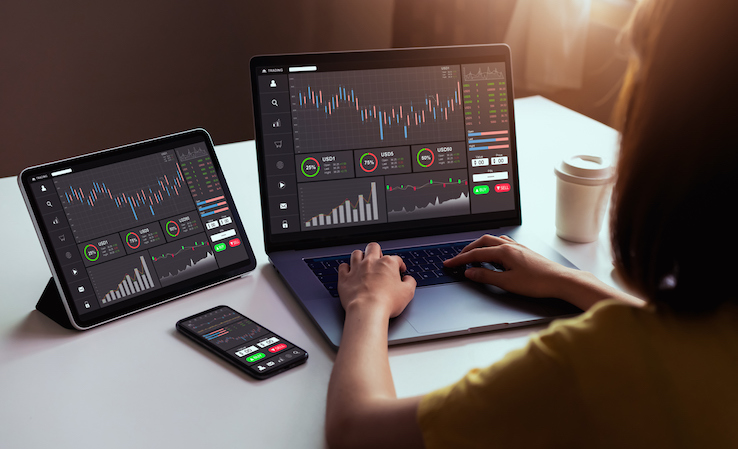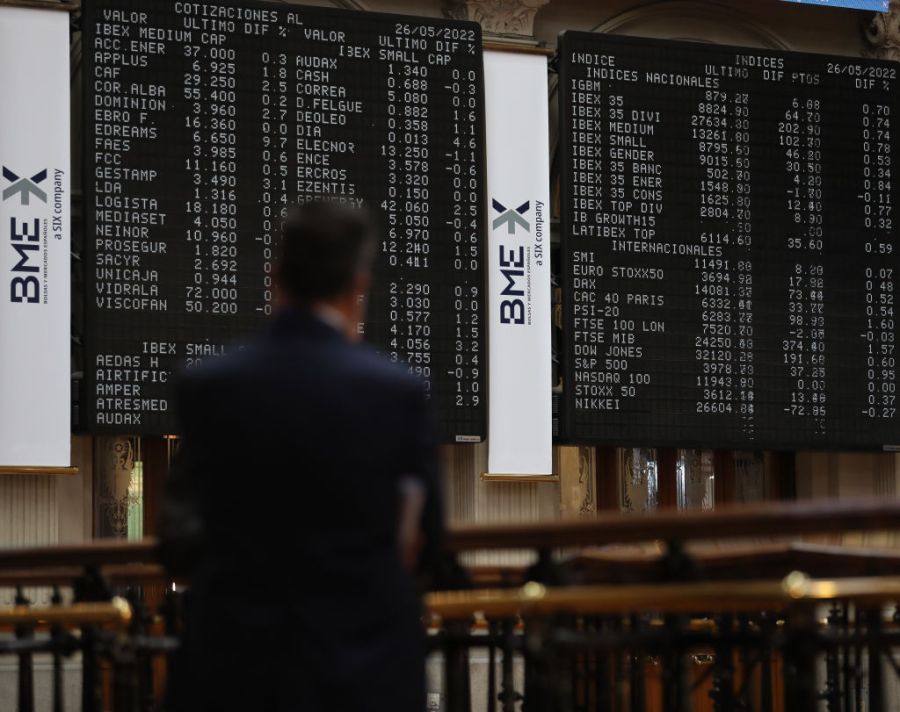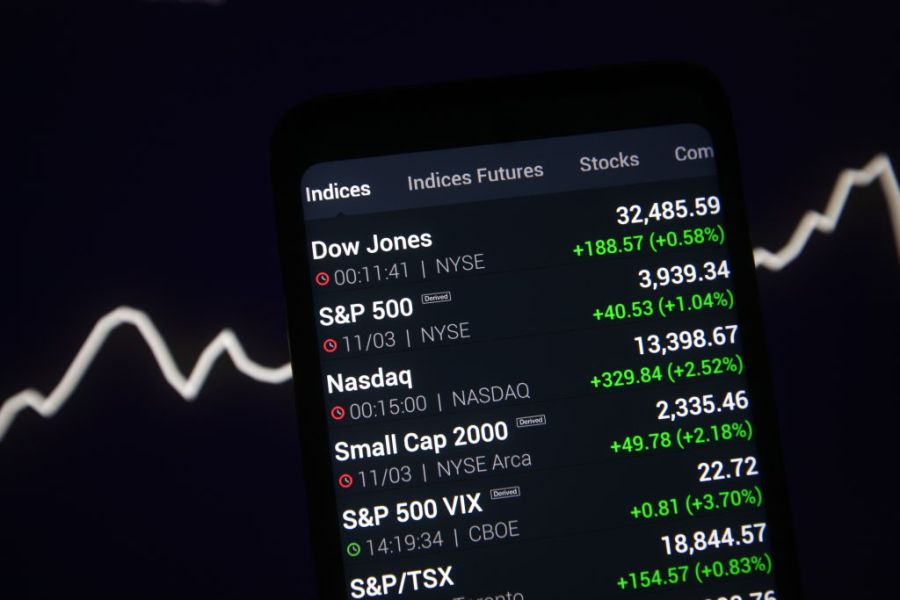
Certificates of deposit (CDs) are widely regarded as a wise choice for beginning investors and those who are looking to diversify their portfolios with lower-risk investment products. No matter which camp you belong to, paying attention to interest rates is a vital part of a strong CD investment strategy. After all, the interest is what earns you money on this type of investment — and the higher the interest rate is, the more money you stand to make when you purchase a CD.
If you’ve been looking into investing in CDs recently, you might’ve heard some chatter about interest rates increasing — and you might be wondering whether this means it’s the right time to make a purchase. Across the board, there has been an upward trend in interest rates for CDs. But is this a temporary response to economic conditions, or can you expect increasing CD interest rates throughout 2022? Here’s what the experts are saying and what it could mean for your investment strategy.
What Experts Say About 2022 CD Rates

Officials at the Federal Reserve predict that there will be three rate hikes during 2022. A rate hike means that the Federal Reserve will increase the federal funds rate. This is the target interest rate at which banks trade and lend federal funds to each other. Each bank calculates precisely how much money it needs to have in reserve accounts to operate. If the deposits and withdrawals of the banking day don’t leave the bank with enough money on hand, the bank can borrow money from another bank. Because more deposits from customers the next day will make up for the deficit, banks offer overnight loans to each other. The federal funds rate is the interest rate that one financial institution charges another for this unique type of short-term loan.
When the federal funds rate increases, the amount of interest banks have to pay for loans increases. Banks pass on this increase to consumers by raising interest rates across the board. Historically, interest rates for CDs increase when the federal funds rate increases, and increased interest rates for CDs and saving accounts mean that consumers can earn more money on certain investments. With all 18 Federal Reserve officials predicting multiple rate hikes in 2022, CD interest rates are almost certain to rise — potentially multiple times.
What Does This Mean for Investors?

Some CDs have fixed interest rates, and others have variable interest rates. Investors with money in fixed-rate CDs will earn the same amount of interest for the full term of the savings deposit regardless of how overall interest rates change. Investors with variable-rate CDs could potentially more than expected if rates increase during the term of the deposit and the CD rates change to reflect that increase. On the other hand, investors can earn less than they expected if interest rates decrease during the term of the deposit.
Expert opinions suggest that CD rates will increase, perhaps several times, in 2022. If you choose to leave your money in an older CD, you risk earning less than you could if you move your money to a CD with higher 2022 rates. However, CDs have early withdrawal penalties. There may be some circumstances, especially if you have large amounts of money in CDs, where the cost of the penalty is still less than the amount of interest you might gain by moving the money to a CD with a higher interest rate.
If you’re considering putting money in a CD, you may want to choose a variable rate account. For 2022, economic indicators suggest that a variable rate deposit account could earn increasing rates of interest throughout the year. However, it’s still a little too soon to make certain predictions about what will happen after 2022. A short-term variable-rate CD, lasting for a year or less, is one potential avenue that could help you take full advantage of the potential rate hikes in 2022 without carrying the risk of losing money if rates decrease in 2023. Alternatively, you could ladder your CD investments to spread your risk and reward.
Ultimately, you should always consider the bottom line. CDs are a better way of investing than keeping money in a saving or checking account when you’re mainly considering interest earnings, but they won’t double or triple your investment. If you’re already planning on investing in a CD soon, though, 2022 could be the right time to do it.
Why Do Interest Rates Increase?

Rate hikes usually work as the antidote to inflation. That’s why the Federal Reserve often uses rate hikes as a countermeasure against unchecked inflation. The Federal Reserve takes steps to decrease inflation when the rate of inflation for consumers rises above 2% in a single year. A combination of factors related to the COVID-19 pandemic has contributed to more inflation in 2021 than some consumers have witnessed during their adult lifetimes. That’s why multiple federal fund rate hikes are expected in 2022.
If banks have to pay more to do business, they’ll charge consumers more to take out loans. Higher costs also influence banks to make more conservative spending choices. The total impact of a rate increase is to slow down the economy’s pace. Rather than bringing it to a screeching halt, this makes everyone, from banks to big businesses to households, think twice before making a purchase.
Here’s an example of how rate hikes reduce inflation: Most credit cards have variable interest rates, and rate hikes cause those interest rates to increase. This makes big-ticket purchases on a credit card that you won’t pay off before the next statement cycle more costly to you. Everyone doesn’t rely on credit cards, however, and not all consumers who use credit cards will stop making purchases because their interest rates increase. However, the increase will stop some consumers from making purchases. When there are fewer willing purchasers in the market, demand for goods decreases. When there’s less demand for the same amount of supply, prices decrease, limiting inflation in the process.
A lack of rate hikes can also contribute to inflation. Here’s an example: Many people started the processes of refinancing or buying homes for the first time because mortgage rates were historically low in 2021. This resulted in a large number of buyers entering the housing market. Many regions have supply shortages, meaning more people are looking to buy houses than there are homes available to buy. Higher competition has led to bidding wars, making even undesirable homes sell for more than they’re worth simply because the demand dramatically outpaces supply.
The Federal Reserve expects to curtail inflation with rate hikes in 2022. These rate hikes stand to increase interest rates for CDs, which could make CDs a more lucrative investment choice than they previously were.





